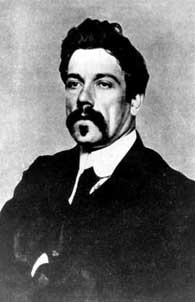A Quote by William Ernest Hocking
Without good-will, no man has any presumptive right, except the right or opportunity to change his will, so long as there is hope of it.
Quote Topics
Related Quotes
Will you keep going when you don't know why? When you can't get any answers that would make the pain go away, will you still say, 'My Lord,' even though his ways are not clear to you? Will you keep going-with all the grace and grit and faith you can muster-and live in hope that one day God will set everything right. Will you trust that God is good? ... Ultimately, the choice everyone faces is the choice between hope and despair. Jesus says, 'Choose hope.'
As a man has no right to kill one of his children if it is diseased or insane, so a man who has made the gradual and conscious expression of his personality in literature the aim of his life, has no right to suppress himself any carefully considered work which seemed good enough when it was written. Suppression, if it is deserved, will come rapidly enough from the same causes that suppress the unworthy members of a man's family.
In the first place, the government ought not to be invested with power to control the affections, any more than the consciences of citizens. A man has at least as good a right to choose his wife, as he has to choose his religion. His taste may not suit his neighbors; but so long as his deportment is correct, they have no right to interfere with his concerns.
The absurd man will not commit suicide; he wants to live, without relinquishing any of his certainty, without a future, without hope, without illusions … and without resignation either. He stares at death with passionate attention and this fascination liberates him. He experiences the “divine irresponsibility” of the condemned man.
The natural inclination of man is to rely solely upon himself and to ignore the purpose of his existence as well as his relationship to God who is his spiritual father. If man will recognize his divine origin, he will then realize his Heavenly Father will not leave him alone to grope in darkness of mind and spirit, but will make available a power to influence him in right paths and into standards of good behavior. The Holy Ghost is that power.
Hope has a thick skin and will endure many a blow; it will put on patience as a vestment and will endure all things (if they be of the right kind) for the joy that is set before it. Hence patience is called patience of hope,' because it is hope that makes the soul exercise long-suffering under the cross until the time comes to enjoy the crown!
If you have to look along the shaft of an arrow from the wrong end, if a man has you entirely at his mercy, then hope like hell that man is an evil man. Because the evil like power... they will talk, they will gloat. So hope like hell your captor is an evil man. A good man will kill you with hardly a word.









































